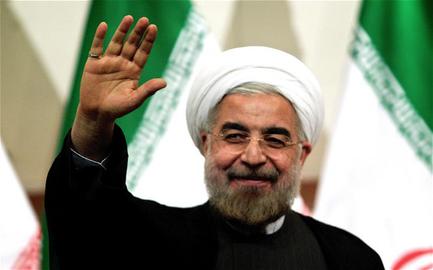
According to Articles 12 and 13 of the Islamic Republic’s Constitution, the official religion of Iran is Shi’a Islam but other major monotheistic faiths, Judaism, Zoroastrianism and Christianity are also officially recognized. Followers of other religions cannot exercise the same rights as Shi’as and religion-based discrimination is woven through many Iranian laws. The undeclared implication of Article 13 is that other religions including Baha’ism are not officially recognized. As a result Baha’is are deprived of even the minimum rights that other non-Shi’a religions enjoy. Followers of other official religions can follow the rules of their own religion in worship, religious education and personal affairs such as marriage, divorce, and inheritance. They are represented in the parliament but the Baha’is are denied all of these rights.
Baha’is are the largest non-Muslim religious minority in Iran and according to latest statistics they number more than 300,000. Baha’ism started in Iran but the Baha’is have always been subject to hostile treatment by Iranian rulers, so much so that they are not allowed to use public cemeteries and must bury their dead in their own separate graveyards. Hardliners regularly attack Baha’i cemeteries around the country and break headstones and memorials.
The Baha’is are denied all citizens’ rights. Since the Islamic Revolution they even cannot study at universities. University registration forms asks the prospective student for religious affiliation and because “concealment” is not allowed in Baha’ism and Baha’is do not want to lie about their religious affiliation they do not gain admittance. After Mohammad Khatami was elected president in 1997 he sought to find a solution to this problem but for political considerations did not want to explicitly allow Baha’is into universities, so he ordered higher education officials to remove the “religion” question from registration forms. With this ploy some Baha’is were able to register at universities.
Unfortunately after a while the Ministry of Intelligence managed to identify Baha’i students and expel them from universities. In 2002 I was the lawyer for a number of expelled Baha’i students. I filed a complaint with the Civil Service Justice Court but practically it got nowhere. The Baha’i community tried to find a solution by creating an unofficial university where Baha’is could study. After Mahmoud Ahmadinejad became president, however, security agents raided the university, shut down it down, and arrested. teachers and students, many of whom are still in jail.
Baha’is are also deprived of more basic citizens’ right. Not only can they not work in the civil service or enter the armed forces, they are not allowed into businesses such as confectionary, restaurant, hairdressing and others which need government licenses.
This discrimination pushes them to the margins of Iranian society, creating a faith-based underclass that must pay taxes and abide by the government’s laws, but cannot participate in the most basic activities required for sustenance and a dignified life.
visit the accountability section
In this section of Iran Wire, you can contact the officials and launch your campaign for various problems

























comments
Informative article, dear Shirin Ebadi.